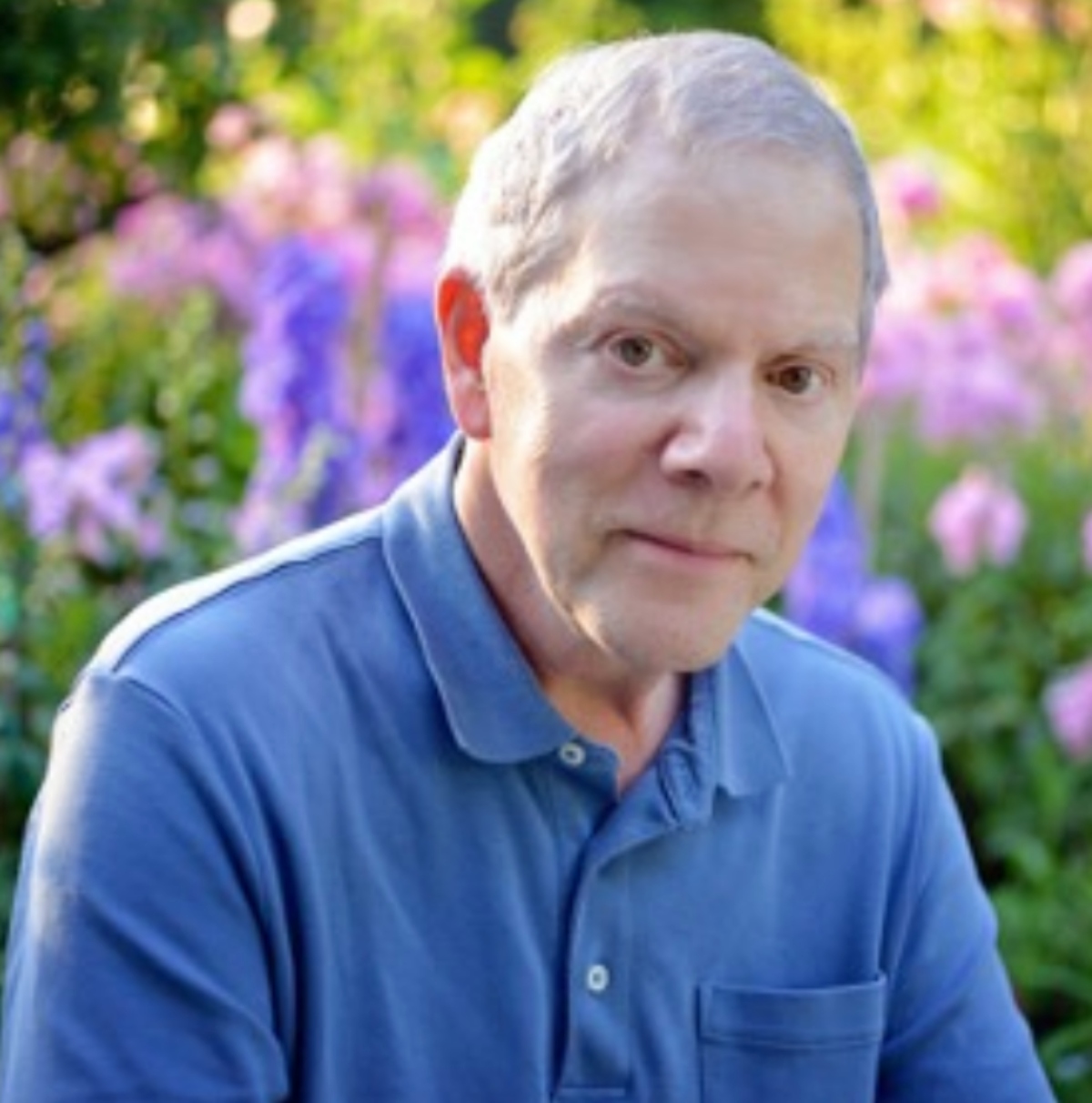What Is Proper Self-Love?
If loving God completely is to love him with all our heart, soul, mind, and strength, then what does it mean to love ourselves correctly? What does that look like? I define loving ourselves correctly as choosing to believe that what God says about us is true. Such a choice will involve discipline since it runs counter to the cultural narrative surrounding us. The world will define us by default. Do nothing, and it'll be more than happy to tell you what to pursue, what to honor, and what to love. In short, the world will tell you who you are.
Imagine going up an escalator that's going down. I remember doing this when I was a kid on a down escalator in a mall. I wanted to see how fast I could go against the grain. If you stop in the middle, though, there's no neutrality. You're going to go down. There's a constant pull, an ever-present pull of the world, the flesh, and the devil to tether us to this world and to its value system. I like to put it this way: “Any dead fish can float downstream.” You have to be alive to go against the flow, against the culture, against the current of our time. So the only way we're going to be made alive in that manner is through the life of Christ in us as mediated through our exposure to the word, His church, and our response to these in our loving relationship with him. Thus, God’s word and His people help to reshape our understanding of who we are—namely, people who belong to God.
What Does It Mean to Root Your True Identity in God's Word?
When we consider our identity, the issue of who and whose we are becomes a critical matter. This is of crucial importance because whatever defines us determines everything. We’re either going to be defined by the world or by the word. When we’re defined by God’s word, the rules change. In sharp contrast with the world, we won’t be wholly determined by parents, peer groups, or society but rather by the One who loves us unconditionally and works steadfastly to conform us to His image—to transform us into what he has made us to be.
Once again, we must ask our Lord to help us to see ourselves as He sees us. Imagine, for example, you went to a party, and you didn't know anyone at that party. Everyone's got their little name tags. “Hello, my name is…” And so you go up to a person with a name tag that says John: "Hello, John, nice to meet you. Tell me..." And you ask them a question. The usual question in such circumstances is, of course, What do you do? But instead, you ask a different question. This is a thought experiment, and I'm not necessarily suggesting that you try it in a social setting: "Hey, John, who are you?" Not being prepared for such an earnest and soul-searching question, John will probably answer based on what he does. He says, "Well, I'm a salesman." "I'm sorry, John, I didn't ask about what you do. I asked you who you are." Well, then he might tell you where he came from. "Sorry, John. I didn't ask you where you came from. I asked you who you are." Now he might tell you about his family. "I didn't ask you about your family. I asked you who you are."
As this thought experiment gets more awkward by the question, we’re brought to the disconcerting conclusion that John doesn't have a clue who he is because he's fabricated a false self-based on having and doing, but not one that has anything to do with being. His sense of identity is all based upon his achievements or his possessions. Conversely, the scriptures give us a more robust understanding of our true identity, and we can answer that question by saying, "I'll tell you who I am. I'm a child of the living God," and there are many other things that we can answer that question with from scripture.
How Can We Embrace Being a Child of God?
Being a child of God means that we belong. We are adopted into the family of God, and adoptions don’t happen by accident. Belonging to God means we are not an afterthought. Instead, each one of us has a purpose and a plan that is intrinsic to who we are in Christ. God has prepared us from the days of eternity, and he's known us and loved us. He's got a purpose and a plan that's as rich as it is remarkable. When we look at the narratives of Scripture, we have a wealth of affirmations for answering the question of who we are. To be a child of God is a changeless reason for being. It's unchanging because it will continue whether we are young or old, rich or poor, married or single. No external circumstances can compromise this rich identity. If God defines us, we can walk with steady confidence in who He is and who we are.
Let’s turn briefly to some of the vivid imagery of identity that we encounter in Scripture. According to John 15, we are branches of the true vine. In the same chapter, Jesus says, "No longer do I call you you slaves. I call you friends. I've made known to you the things that I have not revealed to all." Examples can easily be multiplied. We’ve been justified and redeemed. We’ve been declared righteous. We’ve been paid for and bought with a price. We’ve been set free from the law of sin and of death. As children of God, we are fellow heirs with Christ. God’s word is a vast storehouse on the question of who we are, one that grants us peace and joy. Given the eagerness of the world to define us on its own terms, working our way through this list of what God’s word says about who we are can be a helpful spiritual exercise.
The One Who Loves You Most Is the One Who Knows You Best
When God says he loves us, it's in spite of our natural condition. There's something about His love that transcends our own performance because if His love was warranted by our behavior, we'd be in serious trouble indeed. The reality is that in spite of our depravity, our agendas, and our folly, He still loves us, and He knows us through and through. To phrase the matter starkly, the One who loves you most is the One who knows you best. With Him, there are no secrets; nothing has to be uncovered. If we truly take this astonishing fact to heart, it grants us a lasting sense of security. If God loves me in this radical way (in spite of my many shortcomings), then my proper response is to love Him in return to follow Him and obey all that He calls me to do.
God’s love is beyond our grasp. Why would He love us in this manner? It’s certainly not based on merit or achievement. No, He loved us because He chose to love us. God’s unconditional love is the basis for true security in this world. We have been sealed with the Holy Spirit of promise, so we have security in this world. Consider the radical implications of the scripture that tells us that we are now seated with Christ at the right hand of the Father in the heavenly places. That's an astonishing concept that our deepest self, even now, is there with Him. True, we may not feel that way, but God doesn’t tell us to feel that way. He says to choose to believe it's true in spite of your feelings and your experiences to the contrary.
He has called us to faith, to hope, and to love. His desire for us is that we navigate through this world and this pilgrim existence with that confidence and clarity of thought so that we're no longer defined by the false messages and the mindset of this world. Instead, we're now being defined by the eternal word who spoke the cosmos into being and spoke us into being as well. That's a perfect basis for true security, true significance, and true satisfaction in this world.
Photo Credit: ©Getty Images/Marjan Apostolovic

Kenneth Boa equips people to love well (being), learn well (knowing), and live well (doing). He is a writer, teacher, speaker, and mentor and is the President of Reflections Ministries, The Museum of Created Beauty, and Trinity House Publishers.
Publications by Dr. Boa include Conformed to His Image, Handbook to Prayer, Handbook to Leadership, Faith Has Its Reasons, Rewriting Your Broken Story, Life in the Presence of God, Leverage, and Recalibrate Your Life.
Dr. Boa holds a B.S. from Case Institute of Technology, a Th.M. from Dallas Theological Seminary, a Ph.D. from New York University, and a D.Phil. from the University of Oxford in England.



